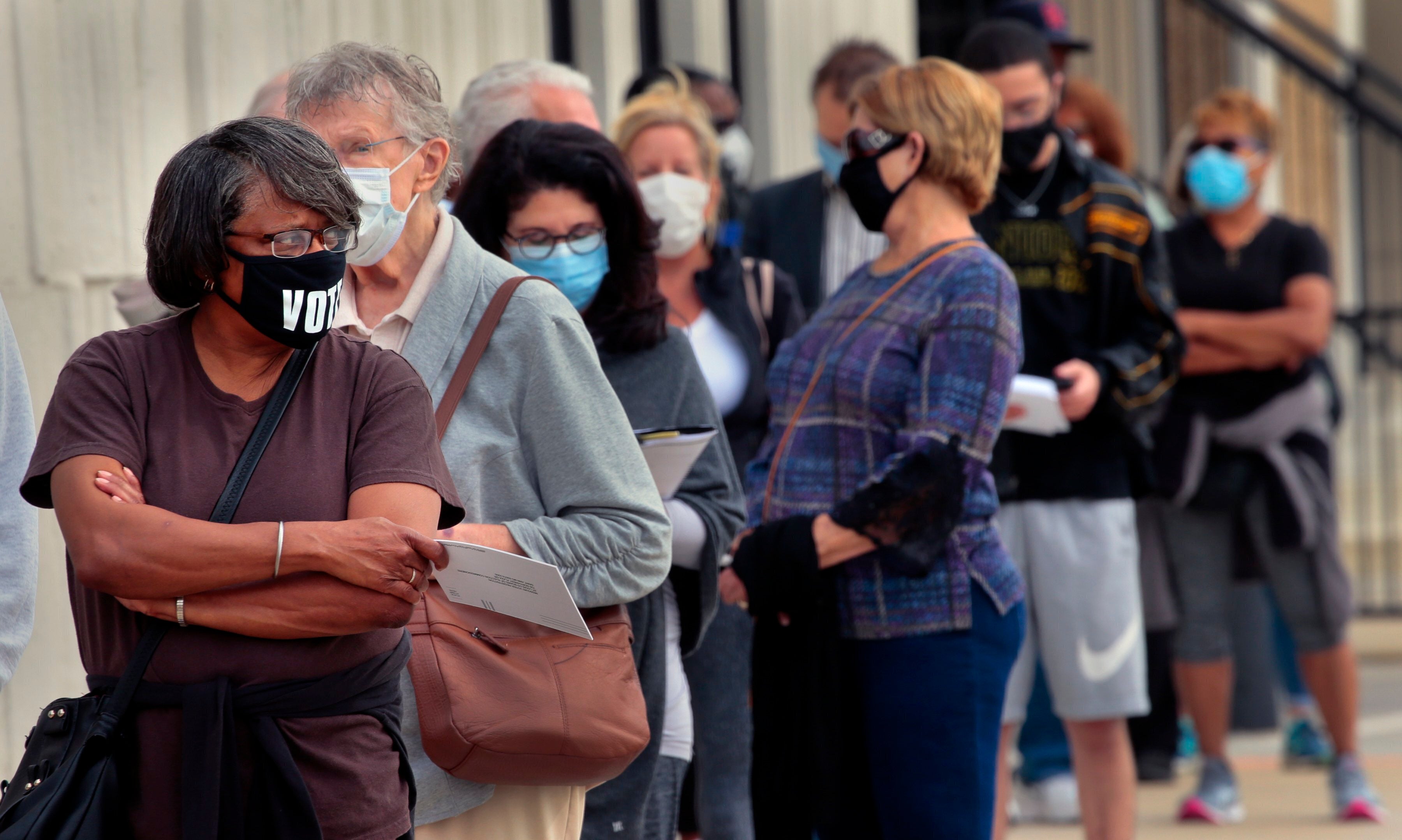Missouri court urged to strike down ballot notarization
Voting rights advocates are urging the Missouri Supreme Court to strike down a ballot notarization requirement for this year's elections

With absentee voting already underway, attorneys for civil rights groups urged the Missouri Supreme Court on Tuesday to ease requirements for those concerned about the coronavirus by allowing anyone to vote remotely without needing to notarize their ballots.
The case brought by the NAACP and League of Women Voters is similar to those being pursued elsewhere, as voting-rights advocates argue that states should be making it easier for people to vote from home during the pandemic that has killed more than 210,000 in the U.S.
Missouri did relax its absentee voting laws and created a new option for mail-in voting for the 2020 elections. The new laws allow anyone to cast a mail-in ballot, so long as the envelope is notarized. A new exception to Missouri's absentee voting laws also allows at-risk people — defined as those age 65 and older, living in a long-term care facility or with certain existing health problems — to vote absentee without having their ballot envelopes notarized.
But “during this health crisis, the law doesn’t do enough to protect Missourians' right to vote," Sophia Lakin, a New York attorney with the American Civil Liberties Union, argued to Missouri's Supreme Court judges. "Voters are saddled with a notary requirement that forces them to choose between risking their health, and those of their loved ones, and their right to vote.”
Lakin urged the court to adopt a simpler standard: "Count all ballots this election regardless of notarization.”
While questioning a representative of the Missouri attorney general's office Supreme Court Judge Laura Denvir Stith asked whether there was anything impractical about doing so.
State Solicitor General John Sauer responded that suspending the notarization requirement after thousands of people already have requested ballots could be confusing and grant one group of voters a privilege that others did not have. Supporters of the notarization requirement say it helps deter fraud.
Absentee voting began Sept. 22 in Missouri. About 364,000 absentee ballots have been requested so far, already exceeding the roughly 305,000 requested during the 2016 general election, according to the secretary of state's office. About 38,500 mail-in ballots also have been requested this year.
Missouri is one of nine states — along with Alabama, Alaska, Louisiana, Mississippi, North Carolina, Oklahoma, South Carolina and Wisconsin — that require voters to have a notary or witness signature along with their mailed-in ballots, according to the Brennan Center for Justice. Though South Carolina's witness requirement had been suspended, the U.S. Supreme Court reinstated it on Monday while a lawsuit over it proceeds.
The Missouri case is an appeal of a decision last month by Cole County Circuit Judge Jon Beetem, who ruled against the plaintiffs. Beetem wrote that the evidence showed that election authorities provided “a safe voting experience” during the August primary and “will continue to do so in the upcoming general election.”
A total of 544 ballots were rejected during the August primary for failure to have the envelope notarized, according to the secretary of state's office. Beetem's rulings said the notarization requirements did not impose a substantial or severe burden on the right to vote.
Sauer pointed to the lower court ruling while arguing that there is no reason to believe that the General Election is unsafe.
A Missouri Supreme Court brief filed on behalf of seven doctors specializing in epidemiology warned that polling sites “are particularly susceptible to virus transmission” and said in-person notarizations “undermine the benefits of absentee voting” by requiring people to come into close contact with someone they don't know.
___
Follow David A. Lieb at: http://twitter.com/DavidALieb
Bookmark popover
Removed from bookmarks